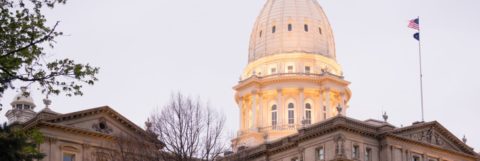Crain’s Detroit Business
Sept. 20, 2022
David Eggert
LANSING — Michigan would automatically use taxes generated from large-scale business expansions to replenish a new economic development incentive fund every year under legislation that was advanced Tuesday.
The Senate Economic and Small Business Development Committee approved the bills on 8-0 and 9-0 votes, sending them to the Senate for potential voting next week or next month and — if that occurs — House consideration in the post-election “lame-duck” session.
The three measures would boost the Strategic Outreach and Attraction Reserve Fund. It was created by lawmakers and Gov. Gretchen Whitmer in December and seeded with $1 billion. All but $200 million is spoken for now, after grants were awarded to support projects planned by General Motors Co., Ford Motor Co., and Hemlock Semiconductor Corp.
Related: Historic Economic Development Package Passed with MichAuto and Chamber Advocacy
Under the legislation, personal and corporate income taxes generated from a SOAR-funded project would go to the SOAR Fund each year for new projects, capped at no more than 5 percent more than the size of the company or site’s state grant. If the fund grew to above $2.5 billion, excess funds would revert to the state government general fund.
The goal, supporters say, is to provide stability after state leaders for years took zig-zagging approaches toward economic development policy that left Michigan “out of the game” nationally.
“This is to provide a sustainable funding mechanism for economic development for the future,” said Sen. Ken Horn, a Frankenmuth Republican and key bill sponsor who chairs the committee. He said he held the votes Tuesday because there are few session days the rest of the year, leaving little time to “get the idea across the finish line.”
Additional work is needed with Whitmer’s administration, he said, to structure a final tax-recapture mechanism. He noted that some legislators want to ensure there are no budget implications in an economic downturn. The state remains on the hook, for instance, for billions of dollars worth of tax credits that were issued under the old Michigan Economic Growth Authority program.
Supporters of the legislation include local economic development agencies and business groups like the Michigan Chamber of Commerce and Michigan Manufacturers Association. Opponents include AFT Michigan, a teachers union, and the conservative Mackinac Center for Public Policy, a think tank that has said the bills would divert tax revenues from classrooms, roads, health and public safety.
Whitmer has been asking legislators to deposit $500 million of a $7 billion surplus into the SOAR Fund so it is larger as state officials pursue deals.


